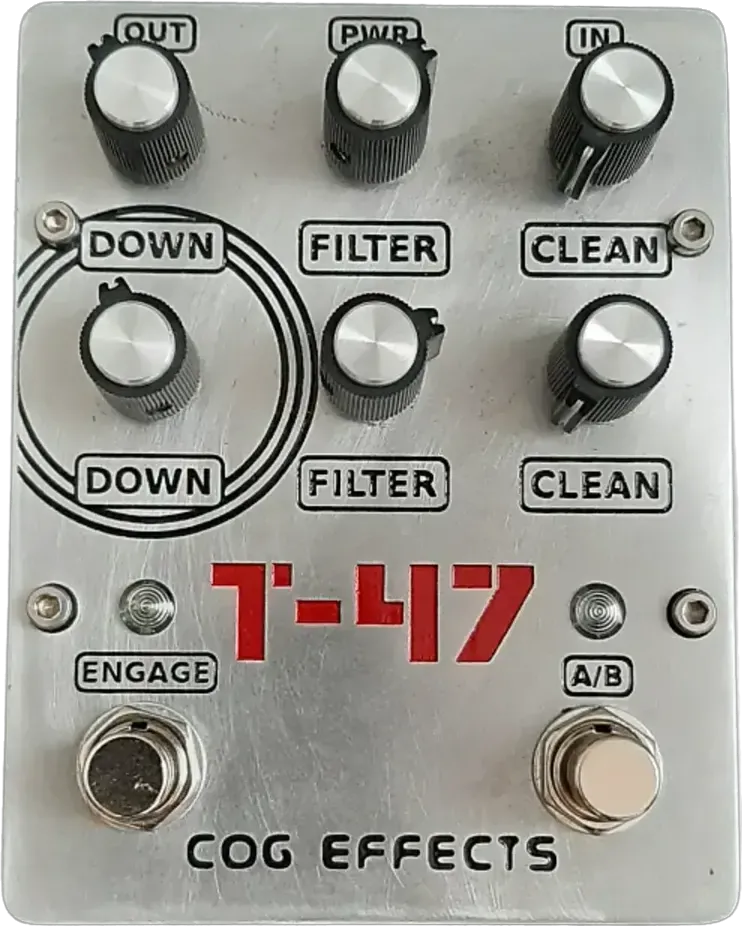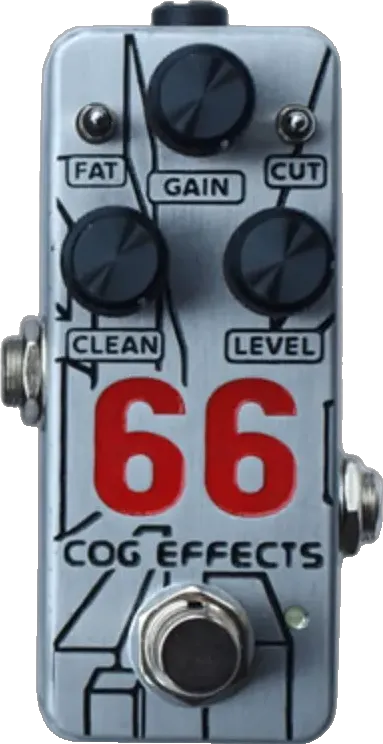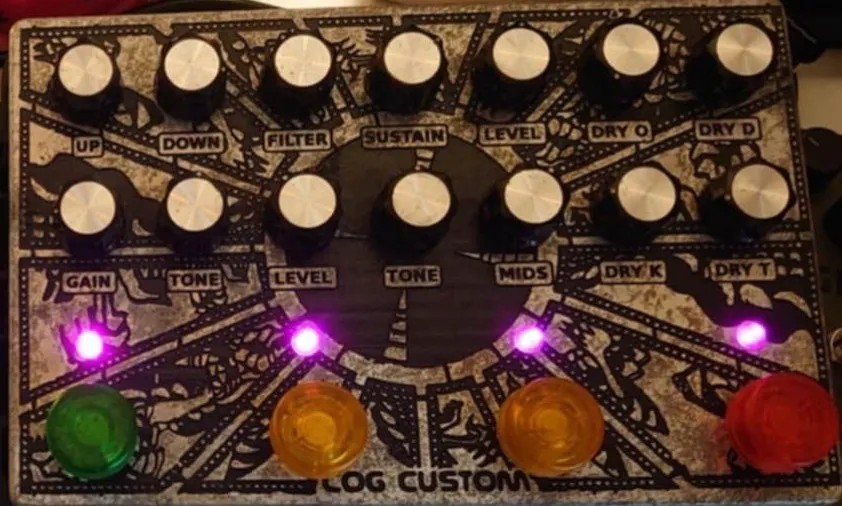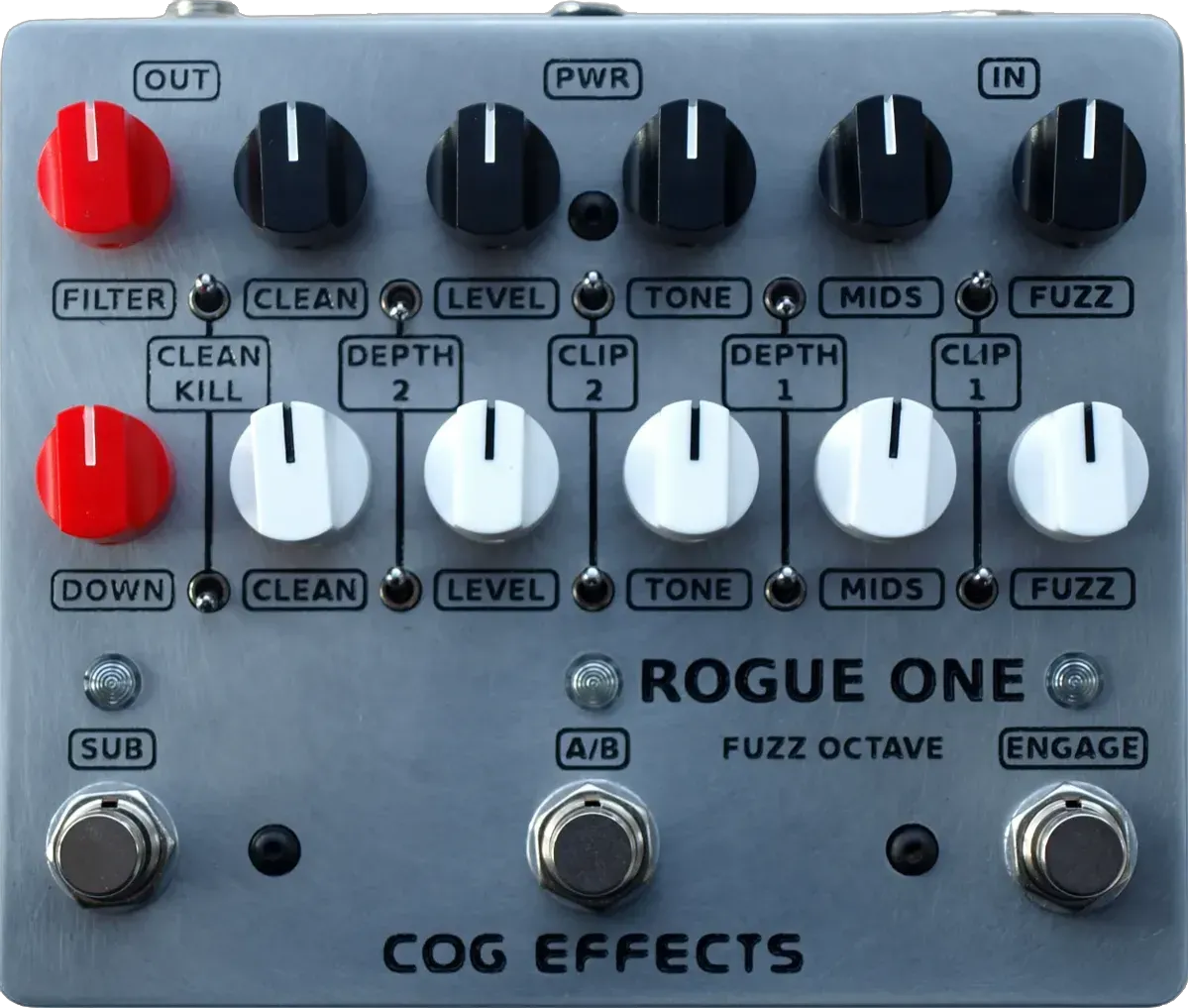T-65 Analogue Octave
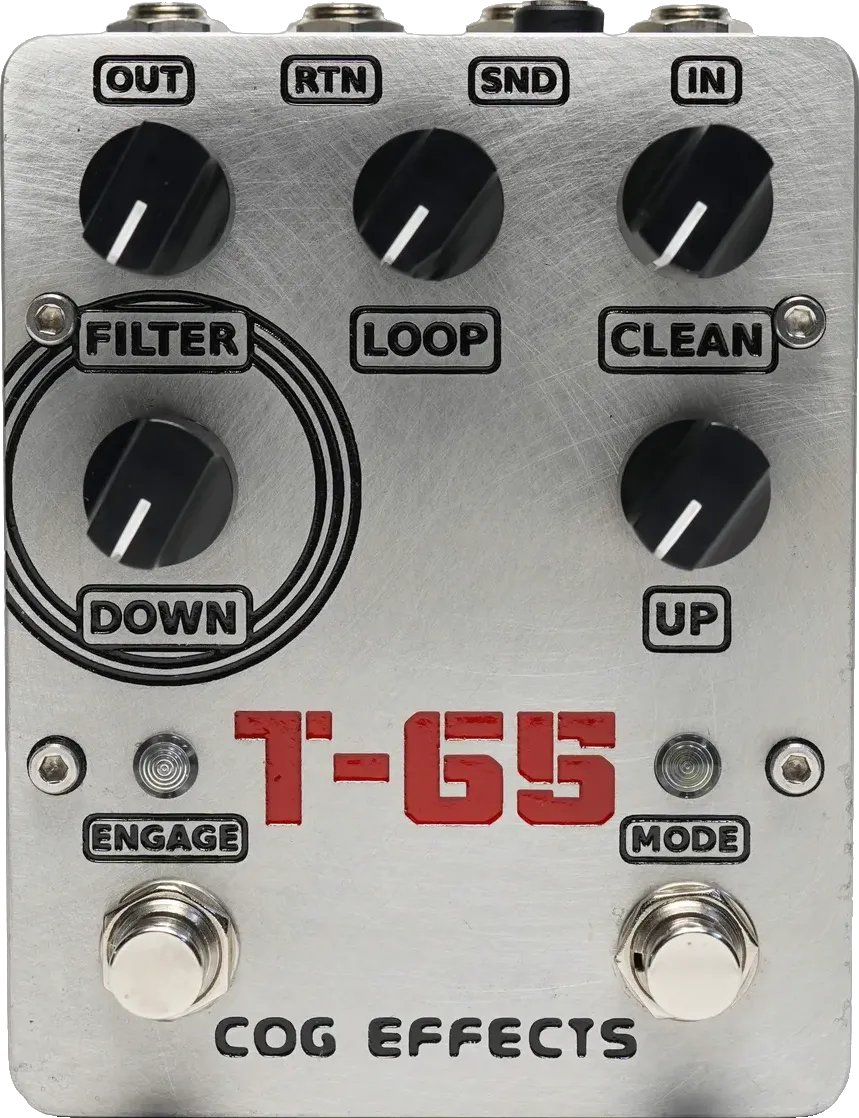
Description
The original T-65 was engineered to allow bassists to fully explore the sonic landscape of the analogue octave pedal. This second iteration gives the same awesome tone and freedom to experiment while also being more pedalboard-friendly. The TRS jack for the effects loop has been replaced with individual send and return jacks, and the new Mode footswitch allows you to engage or bypass your effects loop when the T-65 is bypassed - no longer do you sacrifice your effects loop pedals to only be used when the T-65 is engaged, now you can switch them in and out in bypass. Analogue octaves aren't perfect: they glitch out and don't produce the "clean" octave signals that a digital octaver does, but they have a certain character that makes the sound much more musical and appealing to the ear. The T-65 is designed to provide the best possible tracking while retaining this character. Level controls are included for dry signal, one octave down, one octave up, and the parallel effects loop. The Filter control is an adjustable low-pass filter on the octave down signal, ranging from tubby subby dubby tones through to buzzy synthy tones and everything in between. Tune your octave down to your own tastes. Neat. The octave up is a bit dirty and helps add some presence back in to your sound when in a live band mix. It is by no means a clean reproduction of your sound an octave higher, and it isn't designed to be used as a standalone octave up on bass, but instead as an integrated part in this octave machine. Experiment with different pedals in the effects loop. Turn the dry signal all the way down and use a Tarkin in the loop for the fattest, fullest fuzz sound you'll get without bi-amping. Really like that distortion pedal but hate that it kills your low end? Try blending it with your dry signal, an octave down and an octave up rather than just clean blending. All four audio jacks plus the DC jack are north-mounted to provide a convenient footprint for almost every pedalboard.
